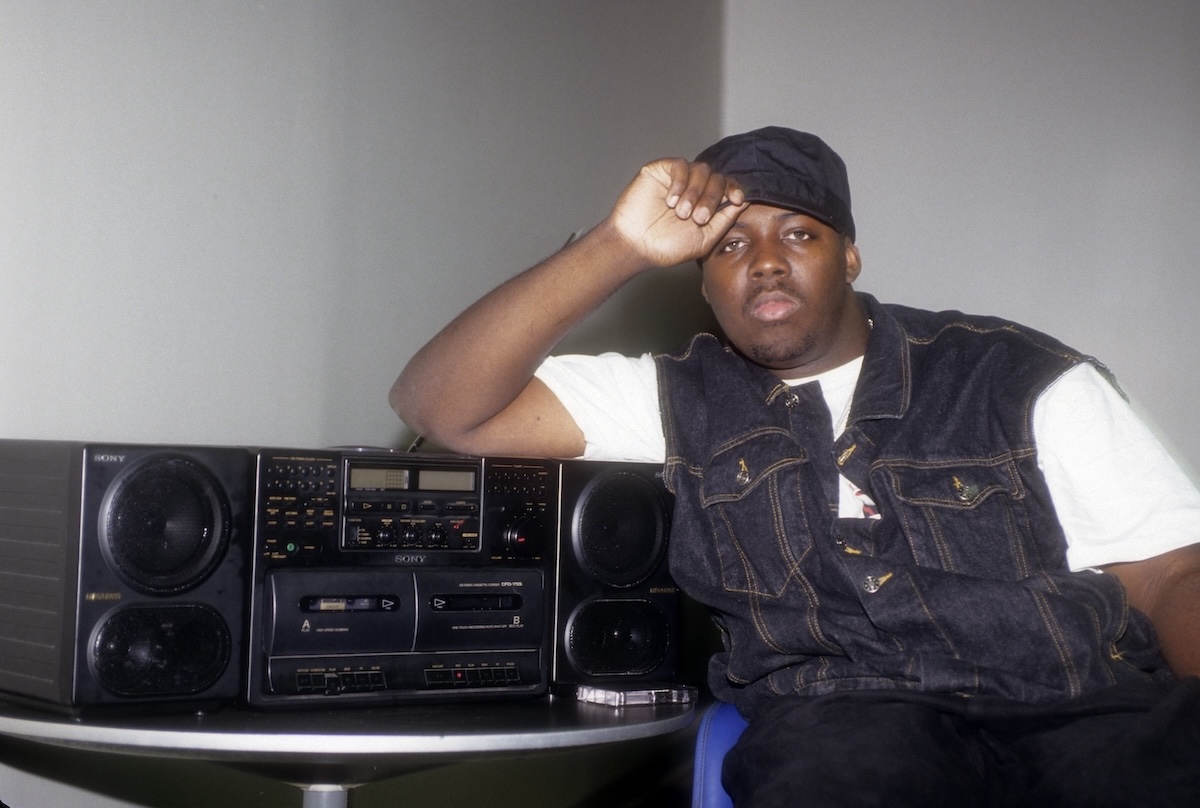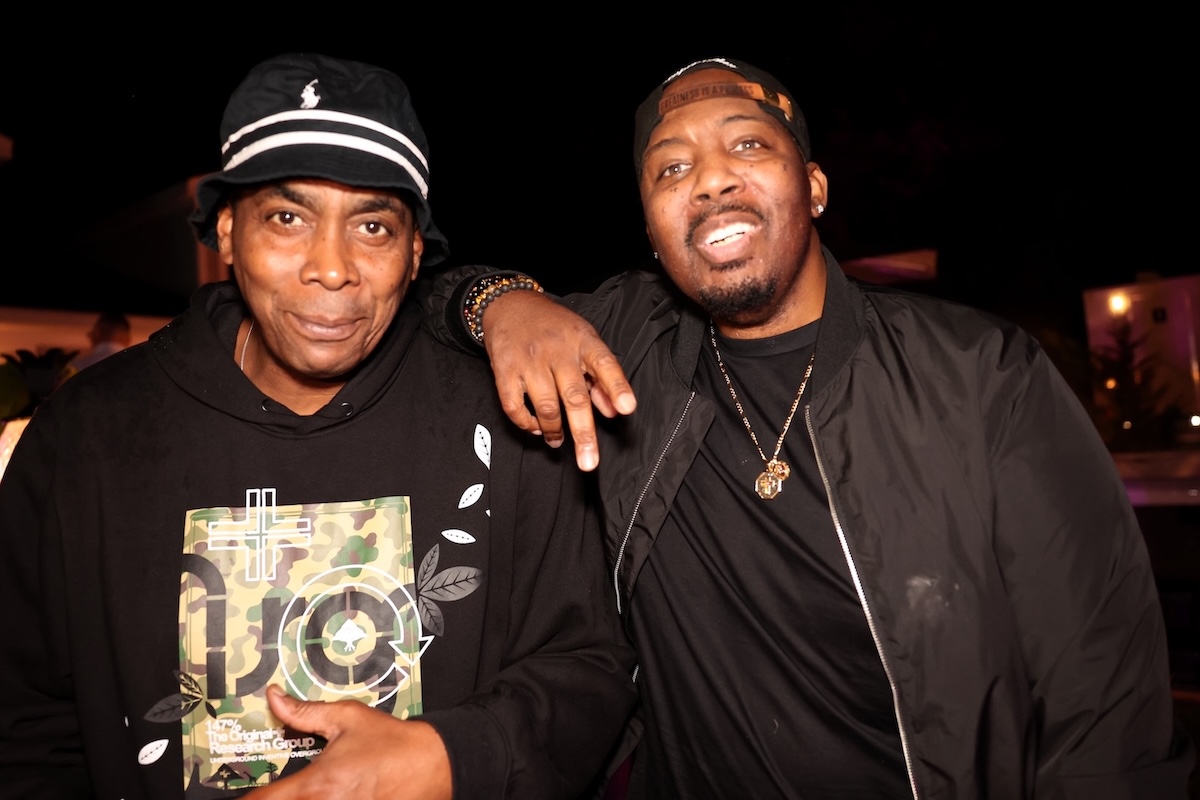Kanye West called Erick Sermon sometime in May 2023 and wanted the EPMD co-founder to hop a flight to Los Angeles to work on a new project.
Sermon’s ailing mother, Belinda, was in hospice care at the time and knew about the trip but didn’t want to hamper her son’s opportunity. Sermon protested but was convinced by his sister Kim to go anyway.
“As soon as I landed, my best friend Bernard Alexander passed me the phone,” he remembers. “It was my sister who told me my mom had transitioned.”
West, who lost his own mother in 2007, told Sermon he experienced a similar situation, and the studio proved to be their safe haven.
“I went to the lab and started working with him the next day,” he says. “It wasn’t easy though. Kanye helped me a lot because he had went through it. He was like, ‘Yo Erick, listen, I went through it. Come to the studio tomorrow.’”
Sermon tried to outrun his grief, relocating to Miami for a spell, but learned he wasn’t a big fan of the Sunshine State.
“I never really mourned,” he says. “I asked people about that part. I never got to that part. I had escaped to Miami. I had to get away.”
Music continued to be his catharsis. After seven albums with EPMD, including 1988’s gold-certified Strictly Business, eight solo albums, and a production discography that includes Redman, Run-DMC, En Vogue, Jodeci, Conway the Machine, Keith Murray, and D’Angelo, to name a few, Sermon dove into recording and will return with Dynamic Duos Vol. 1 on November 21.
The project boasts a potent roster of legendary duos that bridge eras of hip-hop and highlight Sermon’s curatorial vision—from Mobb Deep, Snoop Dogg and Nate Dogg, and Public Enemy to Cypress Hill, M.O.P., Conway the Machine, and The Game.
Talking about the album, there’s a sense Sermon is a little frustrated that Mass Appeal’s Legend Has It series beat him to the punch with albums by Big L, Mobb Deep, Ghostface Killah and Raekwon, but he’s also relieved there’s still ample space and demand for pioneering hip-hop artists that made their mark in the ’80s and ’90s.
“This album has been in the making for years—since COVID,” he says. “I didn’t know, Nas was going to do the Mass Appeal thing. I was doing this in the beginning because I felt like nobody wanted to make records. They felt like they was getting shunned by people saying they were too old and can’t make records. I made Dynamic Duos for that reason.”
Ageism has been a recurring topic in hip-hop circles, with sexagenarians like Ice-T and Public Enemy’s Chuck D and Flavor Flav scoffing at the notion the genre is solely a young man’s game. But Sermon credits Clipse co-founders Pusha T and Malice for closing the generational gap.
“Clipse opened up all of this that we’re seeing right now,” he says. “Before the Clipse, did you see eyes like we see right now? Since Clipse came back, they got new and old people. It opened up hip-hop because one is 53 and one is 48 years old. It was spectacular.
“They was back with Pharrell again, and look at the rollout and the response they got. Then it was like, ‘Oh, Raekwon is coming. Ghostface is coming. Slick Rick is coming. Big L is coming. Mobb Deep is coming. Clipse opened up everything that we are seeing now as far as getting looks on hip-hop at this magnitude.”

Much like Pusha T and Malice reunited as Clipse for Let God Sort Em Out, Sermon reconnected with Parrish Smith and DJ Scratch to record a long-overdue reunion record with his EPMD brethren. In fact, the song was intended for the forthcoming project, but they couldn’t get a particular sample cleared in time, though he was able to get permission from Biggie Smalls and Tupac Shakur’s estates for a single featuring both hip-hop giants.
“That’s how Volume 2 is gonna jump off,” he reveals. “I was able to get Biggie cleared. That was Puffy [Sean “Diddy” Combs]. He cleared it in like two weeks. But Tupac’s sister is going through it with another label, so she couldn’t clear it at that specific time.”
Sermon also tapped back into his producer’s bag for the album, crafting nine out of the 10 tracks. But he admits he’s “never been much of a diggin’ in the crates” type of producer—even with EPMD.
“Me and P [Parrish] used what was in front of us,” he says. “Some records came from when we first signed with Sleeping Bag Records. We found them in the office. Some came from mom and dad. My dad had mad records. Now what I do is go on YouTube, because you don’t have to go to the record store.”
When it comes to AI, however, that’s where he draws the line—at least for now.
“I don’t want to use something that’s going to make me not be me,” he explains. “I don’t want to do that. I can’t put myself in that space at this moment to take away my creation, my hands, and my mind. That’s not me.”
Sermon recruited Method Man and Redman for the album’s lead single, “Look At ’Em,” which arrived in October. He returned with “Like That” featuring Snoop Dogg and a posthumous appearance from Nate Dogg earlier this month. But fans will have to wait until the second volume to hear the EPMD track—and making it happen was no easy feat. Following two breakups (’93 and ’99) and years of public discourse, the trio had to mend some fences to get to a place where they could record together again.

“We did a show about four months ago in Milwaukee that we brought DJ Scratch out for after 11 years,” he says. “It just so happened that we only did four songs because a storm came in. At the end of the day, EPMD got things to work out. We’ve been in the game so long. I love it, but it’s not worth the headache sometimes as far as my mind state in that type of atmosphere.”
Whatever EPMD decides to do in the future isn’t really his concern at the present moment. Sermon is laser focused on Dynamic Duos Vol. 1 and the two additional volumes to follow as well as smashing the notion that hip-hop artists over 40 are “too old” to keep making music.
“I remember Queen Latifah insisting that ‘old school’ be taken out from the start of her name at an awards show,” he says. “Chuck D feels the same. Nas is the only one I know who really embraces ‘old school’—he doesn’t mind it. But I’m glad that the terms ‘legend’ and ‘iconic’ came into use. Now, we can put those names on a list and celebrate our legends, not just call them ‘old school.’
“Our genre isn’t like others; look at Barbra Streisand, dropping seven different colored vinyls. It’s only hip-hop that gets labeled as ‘old school.’ Why do we have to stop when others don’t? It doesn’t make sense.”



